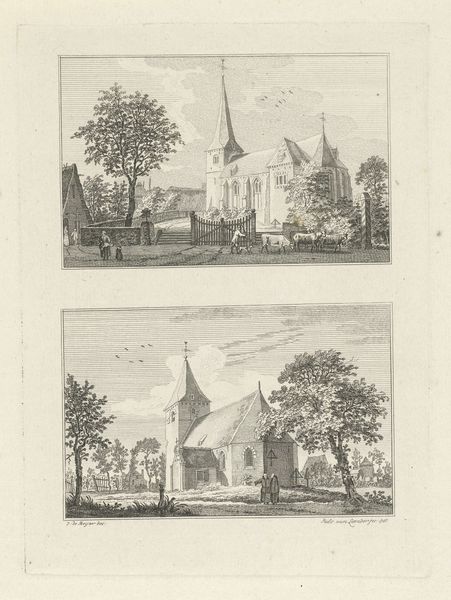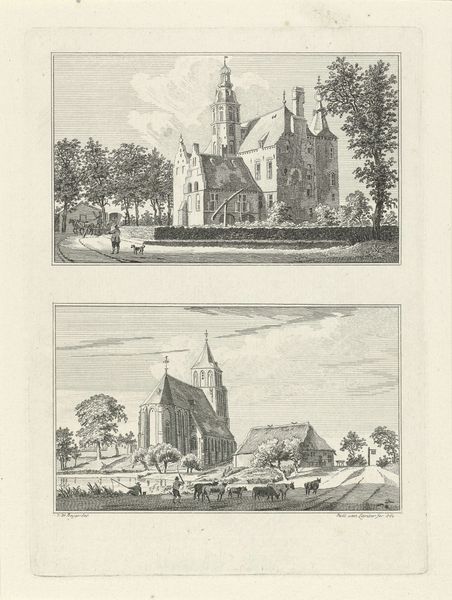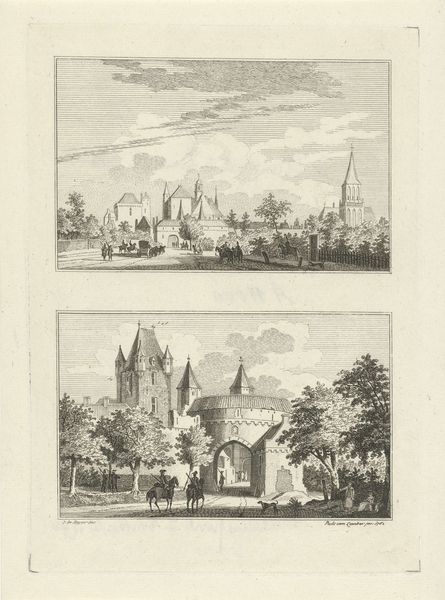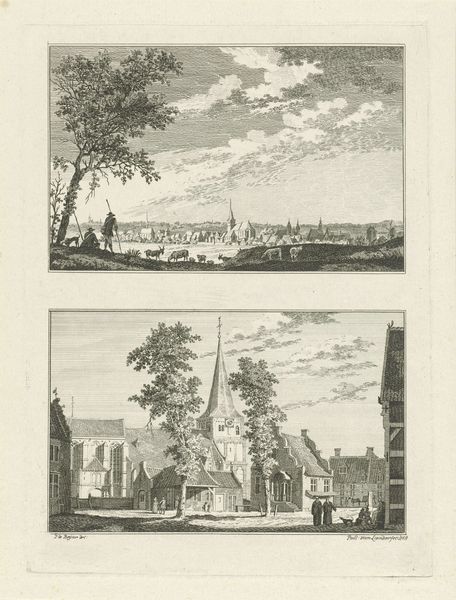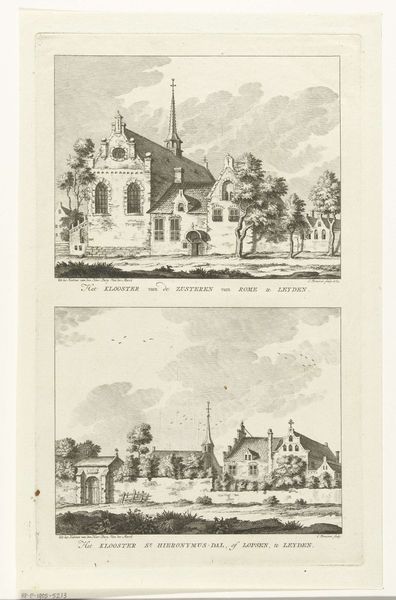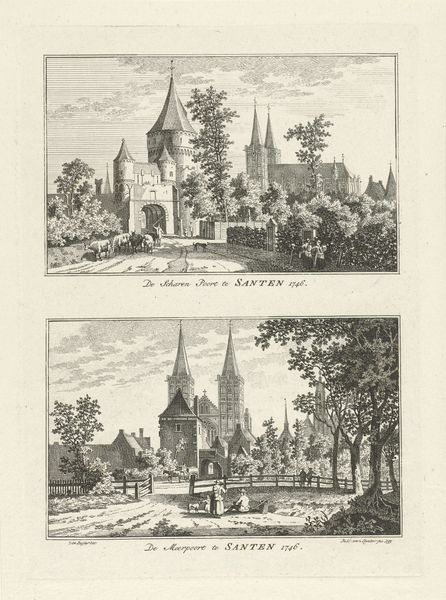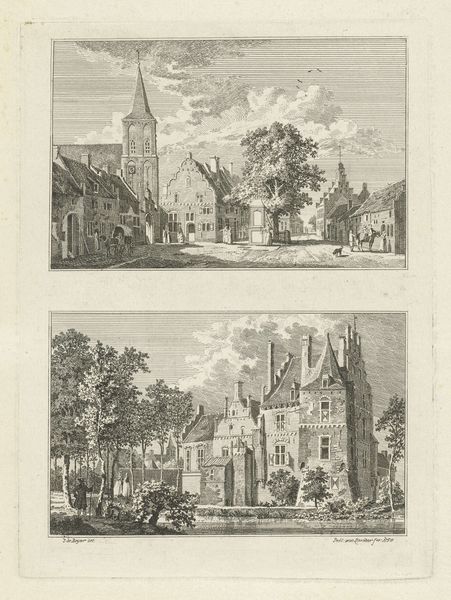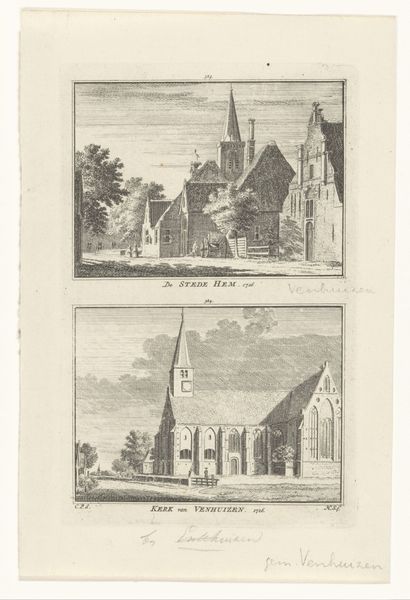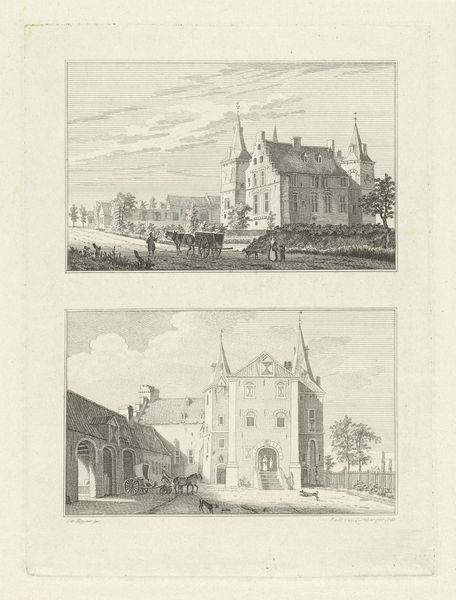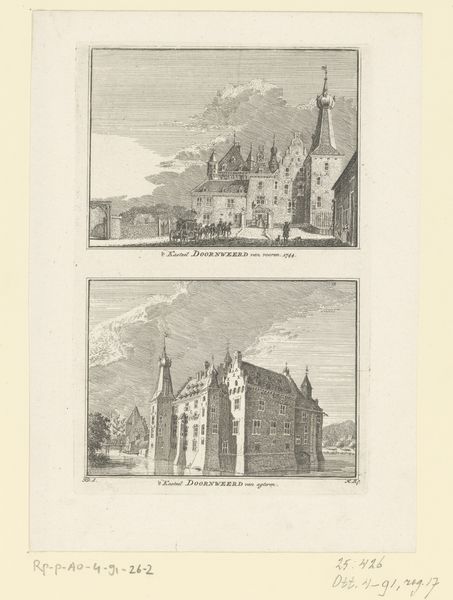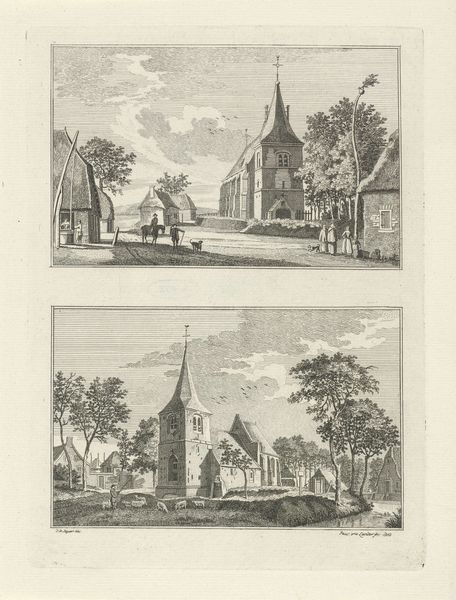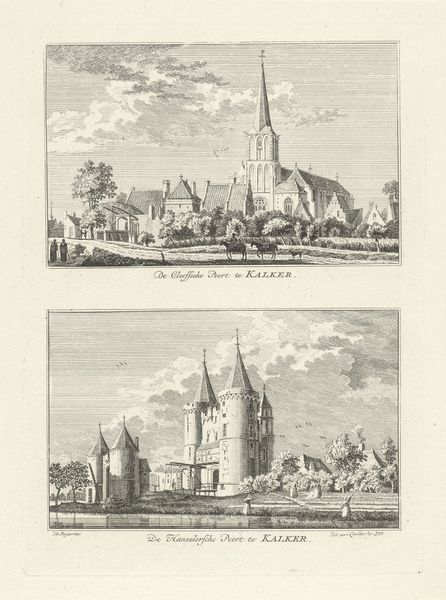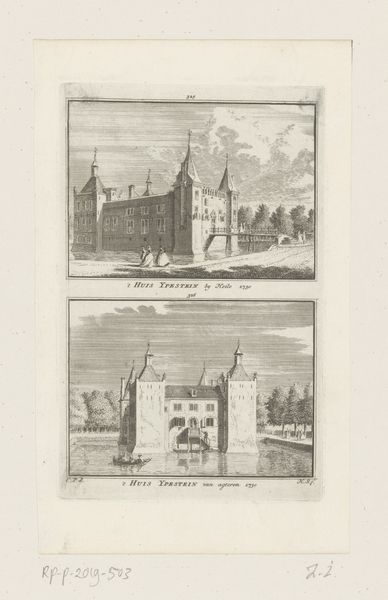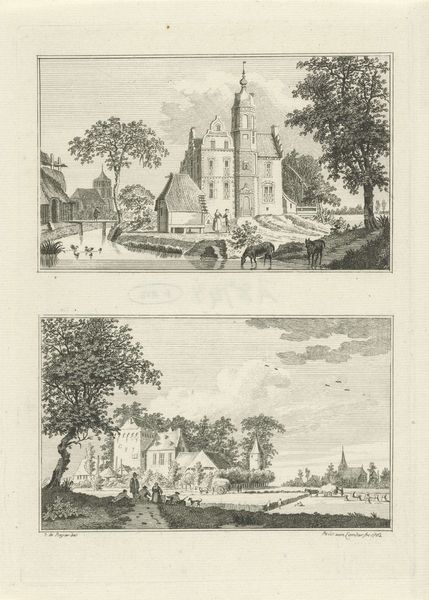
Dimensions: height 199 mm, width 138 mm
Copyright: Rijks Museum: Open Domain
This is Paulus van Liender’s 1743 print showing two monasteries in the Dutch landscape. Religious institutions like these shaped not only the spiritual but also the social and economic life of the Netherlands. Van Liender's image emphasizes the order and tranquility associated with monastic life, contrasting the sacred space within the monastery walls with the outside world. These visual cues and cultural references show the monasteries as places of refuge. The architecture is rendered with precision, but also with a sense of idealization. In the 18th century, the Netherlands was a society with strict social hierarchies and well-defined roles. Monasteries often served as important centers of learning and charity. Prints like this one help to illustrate the complex relationship between religious institutions and the communities they served. Historical archives, religious studies, and architectural history can each offer insights into the function and meaning of these institutions. The appreciation of art is always richer when we bring it into dialogue with its social context.
Comments
No comments
Be the first to comment and join the conversation on the ultimate creative platform.
